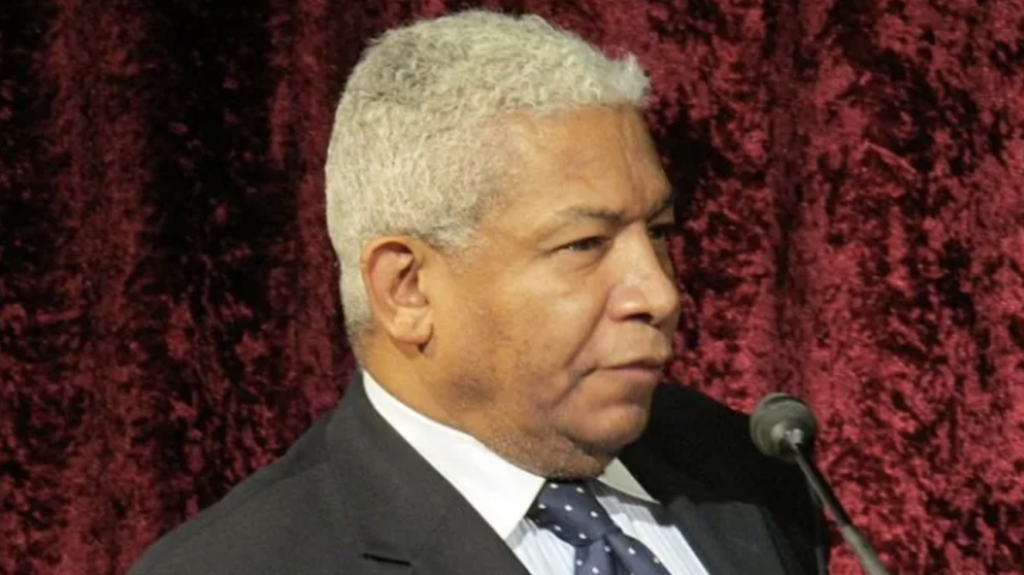With some African bishops expressing concerns about the Vatican’s new same-sex blessing declaration, one prominent black Pentecostal leader is voicing his “solidarity” with African Catholics and urging Pope Francis to withdraw the guidelines.
The Rev. Eugene F. Rivers III, who is the founder and director of the Seymour Institute for Black Church and Policy Studies and a minister for the Pentecostal Church of God in Christ, wrote an open letter to Pope Francis to “condemn your decision to bless homosexual [couples]” and say that “your black Pentecostal brothers in the United States [stand] in solidarity with our Catholic brothers in Africa and the diaspora.”
“The message conveyed by the authorization of the blessing of couples whose sinful conduct is central to their relationship is easily interpreted in ways that contradict the biblical principle of the complementarity of male and female,” Rivers said in the letter.
“The decision is already almost universally being interpreted as approving the blessing of sexual sin; indeed, it invites the inference that it was meant to be interpreted thus,” he wrote.
The Vatican’s Dicastery for the Doctrine of the Faith issued the declaration Fiducia Supplicans on Dec. 18, which permitted “spontaneous” nonliturgical blessings of “same-sex couples.” The declaration reaffirmed the Church’s teaching that marriage is between a man and a woman and maintained the prohibition on any liturgical or semi-liturgical ceremonies for such couples.
Cardinal Victor Manuel Fernández, the prefect for the dicastery, wrote in a note above the declaration’s introduction that the guidelines imply “a real development from what has been said about blessings in the magisterium and the official texts of the Church.”
Fernández added that these blessings are for those who “do not claim a legitimation of their own status but who beg that all that is true, good, and humanly valid in their lives and their relationships be enriched, healed, and elevated by the presence of the Holy Spirit.”
Bishops around the world have been divided on how to properly implement the document and some bishops, mostly in Africa, are refusing to implement it entirely.
The bishops’ conferences in the African countries of Malawi, Zambia, and Cameroon announced they will not implement the declaration. Bishops in Ghana and Kenya have not refused implementation but have emphasized that the Church maintains its disapproval of homosexual activities.
In his letter, Rivers acknowledged that the declaration did not alter the Catholic doctrine on marriage, but he argued that permitting the blessings of homosexual couples bestows some level of legitimacy on the partnership.
“We are well aware, dear Brother, that the document explicitly states that Christian teaching on marriage and the reservation of sexual activity to husband and wife is in no way altered,” Rivers said. “And we thank God for that.”
“And yet, we cannot but observe that by authorizing the blessing of two men precisely as partners (i.e., as a ‘couple’) in a same-sex relationship, there is a recognition of the validity of the partnership — a partnership that is, on the ‘couple’s’ own self-understanding, sexual. (Were it otherwise, the participants would be presenting themselves and requesting a blessing not as a couple, but merely as friends.)”
Rivers wrote that he agreed with the bishops in Cameroon, citing the bishops’ conference’s statement on Fiducia Supplicans: “To speak well of a homosexual couple by an act of blessing would be to encourage a choice and lifestyle that cannot be recognized as objectively ordered to God’s revealed purposes.”
The reverend encouraged the pontiff to withdraw the declaration.
“We … humbly request in the name of the Lord Jesus, who is the same yesterday, today, tomorrow, and forever, that you, Peter, withdraw Fiducia Supplicans and abrogate its recognition of same-sex sexual partnerships and its authorization of the blessing of such partnerships or any other type of disordered relationship,” Rivers said.

